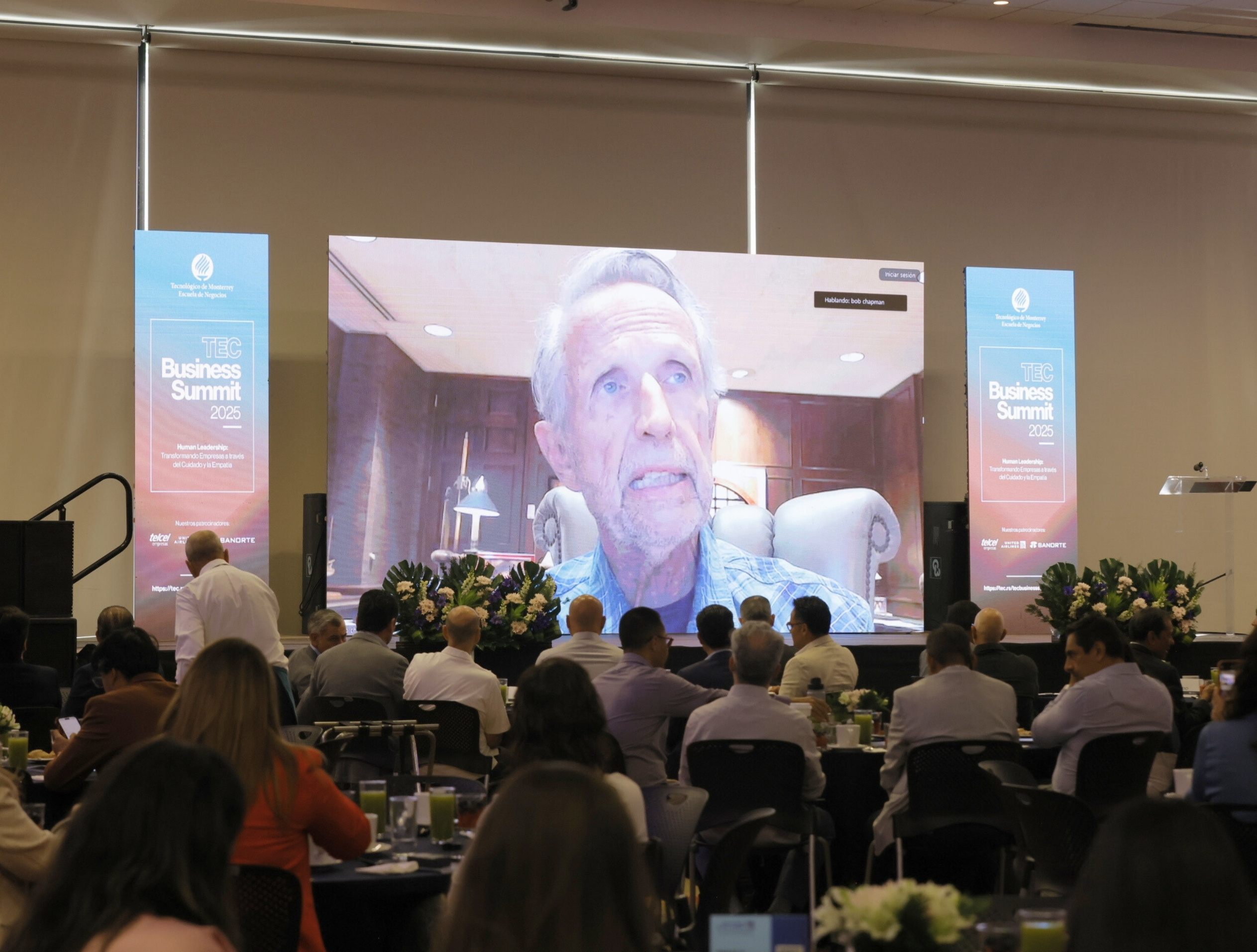Bob Chapman Calls for Leading with Empathy and Human Responsibility at TEC Business Summit 2025

By JOSÉ ÁNGEL DE LA PAZ | EGADE BUSINESS SCHOOL
During his keynote address “Truly Human Leadership: The Skills and Courage to Care” at TEC Business Summit 2025, Bob Chapman, CEO of Barry-Wehmiller, urged a rethinking of leadership’s role in today’s society, stressing that “there has never been a greater need in the world for truly human leadership—in every aspect of society, not just business.”
The Business School of Tecnológico de Monterrey convened the business community for this multi-campus event, co-hosted with EGADE Business School, to explore a new model of leadership based on care, empathy, and cultural transformation within organisations. Held under the theme “Human Leadership: Transforming Companies through Care and Empathy,” the event brought together approximately 700 business, academic, and social leaders on April 9 in Mexico City, Monterrey, Guadalajara, Querétaro, and Hermosillo.
Chapman shared the origins of his people-centred philosophy and explained that employee well-being is directly linked to how people are led. “The person you report to at work is more important to your health than your doctor,” he stated. Citing research that identifies work-related stress as a leading cause of chronic illness, he emphasised that “the greatest privilege of a leader is to impact the lives of those around them positively.”
Drawing on his experience leading Barry-Wehmiller—a company with over 12,000 team members and more than 140 acquisitions worldwide—Chapman recalled how his outlook changed once he recognised the inherent value of each person in his organisation. “That day, my lens changed. I no longer saw people as functions, but as human beings who deserve respect and dignity,” he shared.
In his view, business can become the most powerful force for good in the world—if leaders take seriously their responsibility to care for those within their sphere of influence. “The way we lead impacts the way people live,” he noted.
Chapman maintains that leadership is the responsible stewardship of the lives within our span of care, and that this approach can transform not just companies, but also families, communities, and entire societies. “We can create economic and human value in harmony. They are not in conflict—they are complementary,” he emphasised.
Throughout his talk, he reiterated that leadership is not a title, but a deep responsibility to care, and that the key lies in teaching people how to lead with empathy. “We cannot simply ask people to care; we must teach them the skills to do so. Care is a language, and like any language, it can be learned,” he concluded.